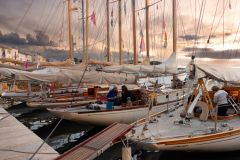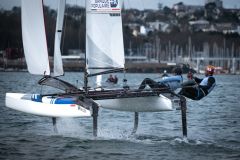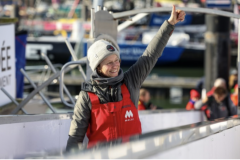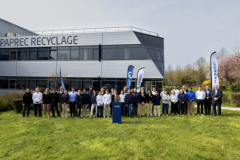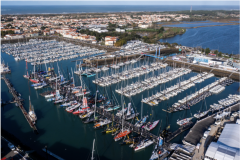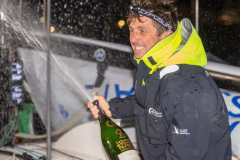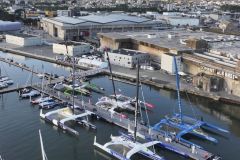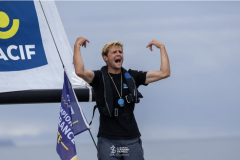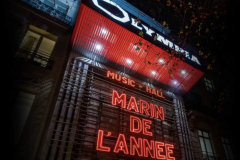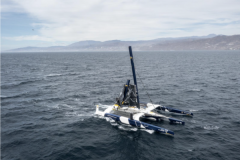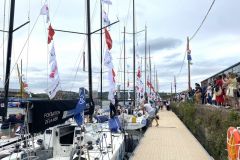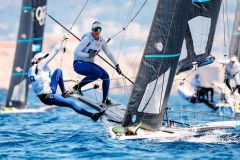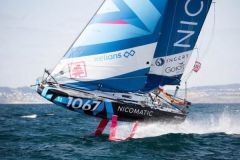A little history..
The Solitaire Bompard le Figaro began in 1970 under the name of the Aurora Race (in reference to the newspaper that organised it). In 1980, the event was bought by Le Figaro, which gave it its name. Its founders Jean-Louis Guillemard and Jean-Michel Barrault wanted it to be a single-handed race with stages and without assistance open to both the best professionals and amateurs. Over the years, it has become one of the most prestigious races.
When it was created, many boats could participate. It wasn't until 1980 that the race was switched to Half Tonners prototypes originally designed for crewed racing. In 1991, a new milestone was reached with the arrival of the Figaro Bénéteau I, specially designed by Jean-Marie Finot for single-handed racing. In 2003, a new, longer and more powerful boat was chosen, the Figaro Bénéteau 2, which is still in use today.
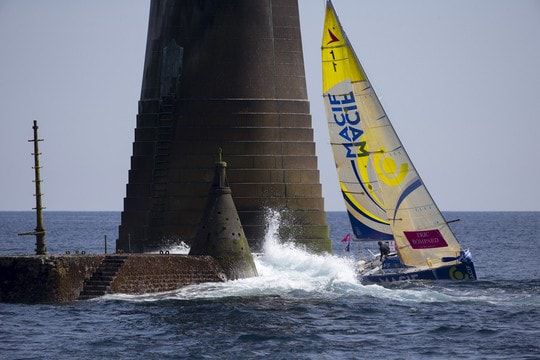
Who participates?
For years, the mixed race of amateurs and recognized professionals. Since the creation of the Vendée Globe, the Solitaire Bompard Le Figaro has become the main event for the best solo sailors. Among them are legends such as Christophe Auguin, Alain Gautier, Yves Parlier, Michel Desjoyeaux, Jean Le Cam, Franck Cammas, Yann Elies or Jérémie Beyou, who have all won it at least once, as well as a host of young talents.
This year, with the Vendée Globe, some of the regulars on the circuit have favoured the round the world race and are giving way to newcomers.
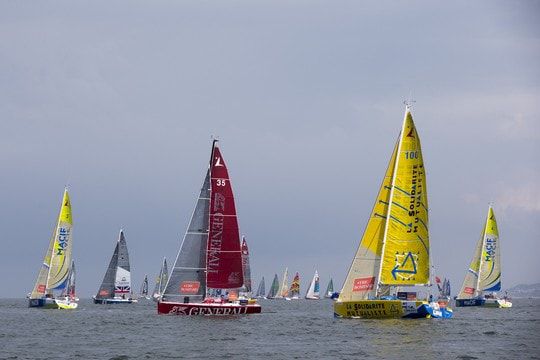
What course?
The race has always started from France and this year it will start from Deauville for the 2 e times since its inception. The total distance covered is between 1,500 and 2,000 miles and a stopover in a foreign country is planned each year, notably Spain, Ireland and Great Britain. This year it will stop for the first time in Cowes in the south of England.
This year, there are three long stages, each 310 to 510 nautical miles long, but there is also a rather unusual 130-mile final sprint that starts and finishes in La Rochelle.
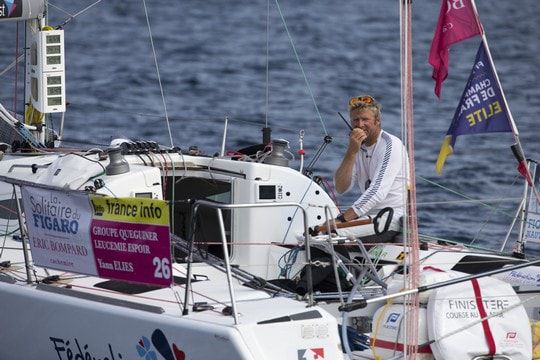
What particularity?
The Solitaire Bompard Le Figaro is one of the last races to be played on time. You therefore need to be particularly consistent to win it. There's no point in winning a stage brilliantly if you're going to miss out on the next one.



